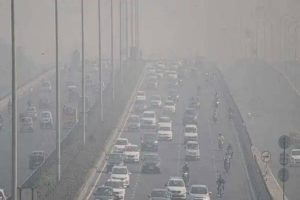New Zealand government has imposed the state of emergency to support the COVID-19 response will be extended a third time for a further seven days, according to the Minister of Civil Defence Peeni Henare on Tuesday.
The initial declaration was made on March 25, and the seven-day declaration can be extended as many times as necessary.
Advertisement
Henare said in a statement, “While the recent COVID-19 case numbers have shown that we are turning a corner, it is essential that we continue to have the powers activated by the State of National Emergency available to maintain the Level 4 restrictions and ensure we do not squander New Zealanders’ good work”.
The powers activated by the State of National Emergency enable civil defence emergency management professionals to carry out critical work during this time including managing roads, traffic and public places; providing first aid, food, shelter and accommodation.
“These powers have been used to direct non-essential businesses to close, direct freedom campers to relocate, requisition a carpark for COVID-19 testing, and close some roads to boost the enforcement of Alert Level 4 rules,” he said.
This comes as the number of coronavirus cases in the country has increased to 1,366 with nine deaths.
Last month, Prime Minister Jacinda Ardern said to the country to behave as if they had the coronavirus and cut all physical contact outside their household when it heads into a one-month lockdown.
New Zealand, with about 5 million people, has fewer infections than many other countries, but Jacinda Ardern’s government wants to move fast to halt the spread. It was one of the first to force all arriving travellers into self-isolation and to ban large gatherings.
Major cities like Auckland and Wellington wore a deserted look as businesses shut down, cafes closed and all offices locked their doors.
Earlier, the government has announced billions of dollars in support for small businesses, workers and families, and promised more in the coming days.
The first one was on 23 February 2011, after a 6.3 magnitude earthquake struck the South Island city of Christchurch, killing almost 200.
Meanwhile, globally, nearly 1.85 million people are infected, while the death toll is over 1.14 lakh.











